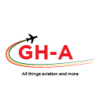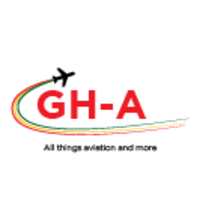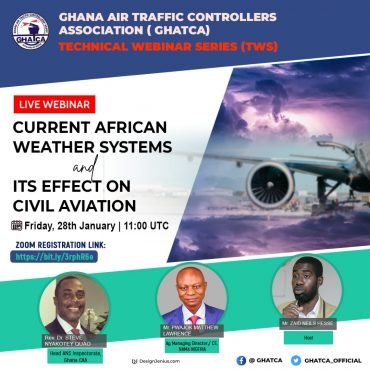
9th May 2018 | Elizabeth Sasu
Airport slot negotiations are the preserve of the World’s more congested airports. However, the SLOTS conference will take place in Cape Town next June and so with this in mind, I spoke to Lara Maughan, Head Worldwide Airport Slots for IATA
JH: As head of worldwide airport slots, can you provide an overview of what your role entails?
LM: As Head of Airport Slots I am responsible for IATA’s activities related to the twice a year Slot Conference, managing and promoting the Worldwide Slot Guidelines (WSG) to maintain a consistent, harmonised airport slot process and leading IATA’s efforts on slot policy development. The slot team at IATA work on behalf of our members and the air transport industry as a whole to keep the WSG relevant and at the forefront of managing scarce airport capacity so that everyone benefits from one single, global slot allocation process. Be it the Calendar of slot activities we publish, guidance on the management of slots and their coordination, the running of the Slot Conferences or day to day discussions with Regulators – we are working globally in all regions to try and align their approaches to managing airport infrastructure when there’s not enough to meet demand, so that there is a fair, neutral and non-discriminatory mechanism of allocating slots.
IATA has a team of five people working on airport slots – it’s a significant area of our advocacy efforts, and we have split our responsibilities towards the regions so that we can better meet the needs of our members and proactively engage with governments. Dimiter Zahariev is responsible for our slot advocacy efforts in Africa.
We spend a lot of our time advocating for the basic principles of the WSG to be adopted to ensure the airlines can continue to grow their networks and build connectivity without further burden from the planning and scheduling process when there’s simply not enough capacity to go around.
We are working closely with the airport community and slot coordinators to ensure the WSG meets everyone’s needs, to benefit the airport users – the consumers. We are doing this through a Strategic Review of the WSG – a collaborative project of IATA, ACI and Worldwide Airport Coordinators (WWACG) – looking at some of the process and policy and ensuring it meets the needs of the stakeholders today and importantly, for the future. All global regions are represented in this key project to ensure slot policy remains harmonised globally through one single best practice guideline.
JH: The president of the ICAO council, Dr Olumuyiwa Benard Aliu said during the SAATM (Single African Air Transport Market) launch that 24 African airports will be full in 2 years’ time if their growth trajectory continues. Is it simply a case that there has been a lack of investment in airport infrastructure on behalf of African governments?
LM: I will need to defer to my regional colleagues to provide more input on this question specifically,
Growth of infrastructure is required to support aviation, grow connectivity and provide the economic benefits that come with meeting demand. However, globally we have seen a lack of investment in infrastructure, and also political will to provide the right airport infrastructure, at the right time. Slot Coordination has become a necessary tool to manage a shortage of capacity when demand clearly exceeds the infrastructure available. The Africa and Middle East region currently accounts for 7% of all coordinated airports worldwide, but it is reasonable to see this figure increasing over a 10 year period.
Specifically in Africa there is clearly a need to invest in airport infrastructure so that capacity can meet the projected growth in demand. Authorities must look to anticipate this growth and meet future demand.
Importantly, the decision to invest in infrastructure must be driven by a thorough demand forecast and capacity assessment to meet the users needs, and through studies and meaningful consultation with all aviation stakeholders.
Airports should ascertain that investments in capacity meet current and future demand in a cost-effective manner.
IATA advocates for the implementation of global best practices when it comes to the decision making process of when and how to invest in improving infrastructure and increasing capacity to meet demand
JH: IATA project that if SAATM is implemented, there could be over 300 million passengers per year by 2035, up from just over 100 million in 2015. How big an impact could slot availability have on this growth?
LM: IATA recognises that the growth could be significant to meet projected demand. Infrastructure needs to be forthcoming to enable this or there could be a large scale need for coordinating in Africa.
Given the continuing global growth in passenger and cargo traffic and the comparatively conservative airport development projects we foresee coordination continuing its role in the aviation industry. Airport capacity continues to be a key challenge worldwide; slots are no longer a short term solution to a lack of airport capacity, instead slot coordination has become a way of doing business; the only mechanism for avoiding chaos at congested airports.
We advocate for the implementation of the Worldwide Slot Guidelines (WSG) and its best practices for slot management. The WSG remains the only globally-recognized best practice for the management of scarce airport capacity and provides a reasonable solution that is better than any other option today – it supports growth, connectivity, has promoted competition and enabled the development of the low-cost carriers at many slot controlled airports.
The slot allocation process takes place in the context of a global network of airlines and airports and this worldwide system is based on the four cornerstones of the WSG:
Certainty of access and ability to build networks
Flexibility to mix and match to meet changing market needs
Sustainability of costs and continued, stable operations to promote connectivity
Transparency of allocation, capacity and rules
JH: How do you suggest we address this problem to minimise the impact?
The WSG has been adopted worldwide and many governments either refer directly to the WSG or have integrated WSG principles in their slots regulations, providing transparent, fair and consistent criteria for managing slots. It is the only mechanism for avoiding chaos at congested airports.
IATA promotes the implementation of the globally recognized, definitive set of policies, procedures and processes in the WSG.
Having the same set of rules at both the departure and arrival airport will provide the African aviation industry the ability to build networks and schedules and provide choice and connectivity to the passengers.
Connectivity is about providing flights at times that meet the needs of the passengers, providing a network and operating to the destinations they want to fly to.
Better connectivity in return is providing economic, tourism and trade benefits to the African economies.
In order to encourage further opportunities for aviation growth, we would always recommend African governments adopt smarter regulation principles, align with international best practice and therefore provide a level playing field to their own airlines operating in Africa and outside of the region.
Source: aviationdevelop








Post comments (0)